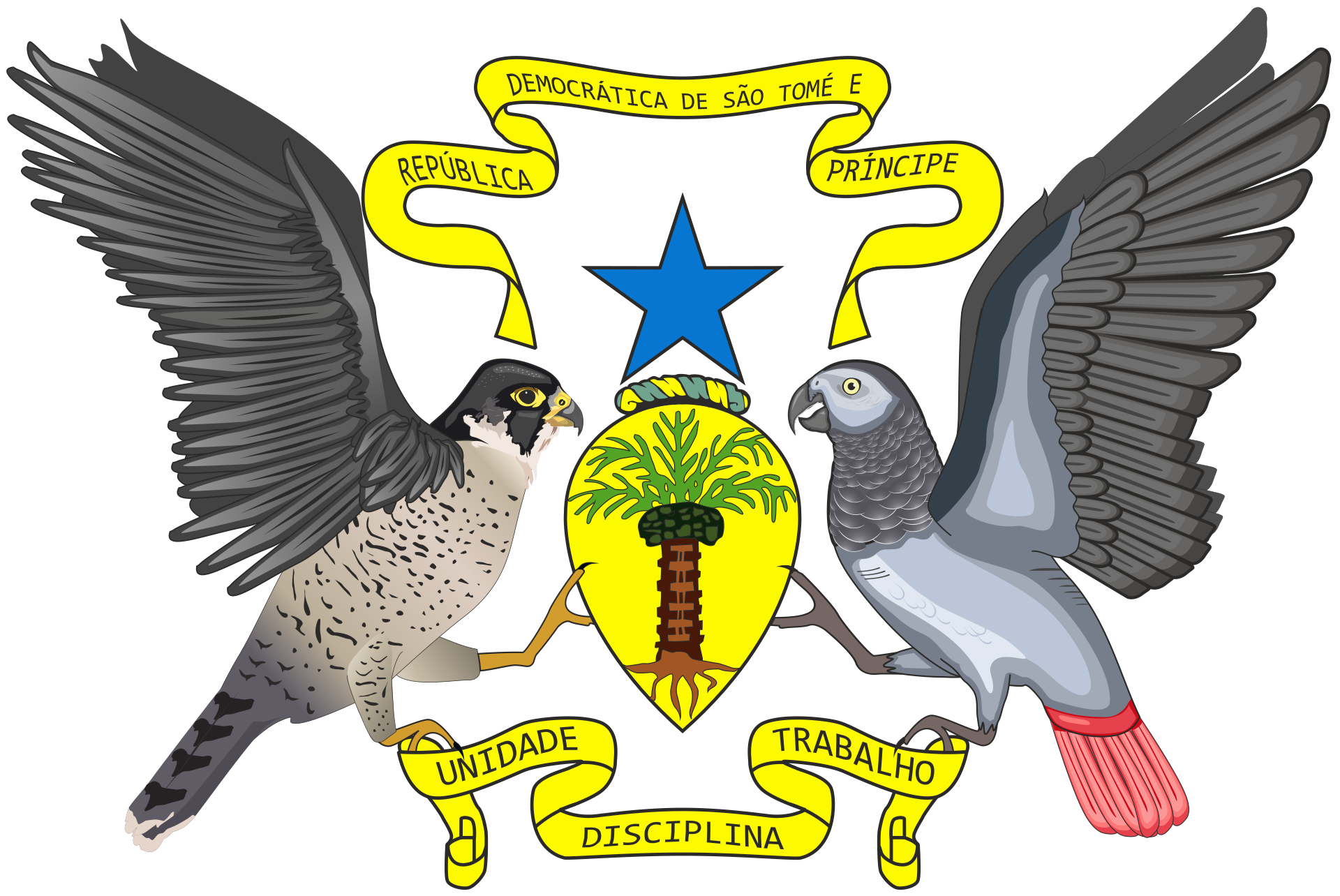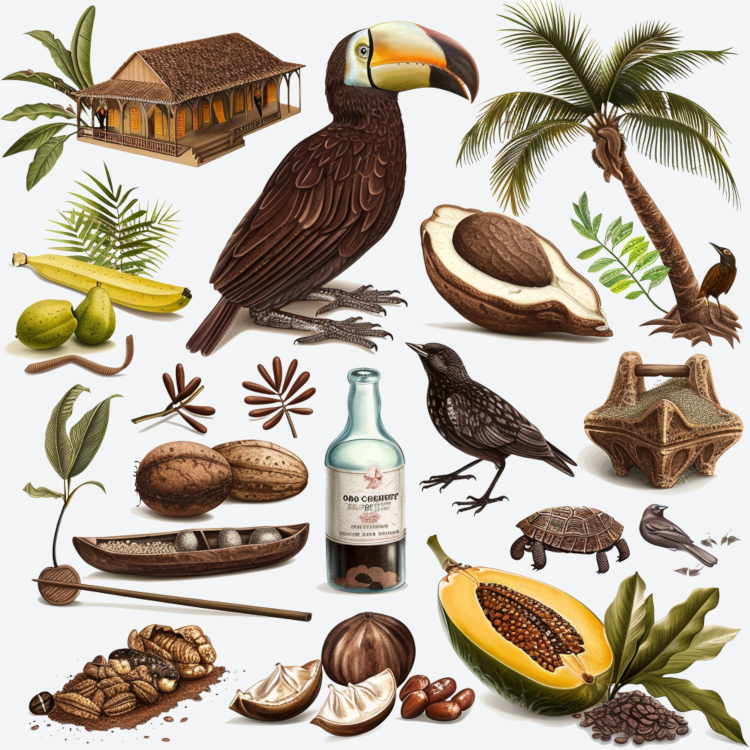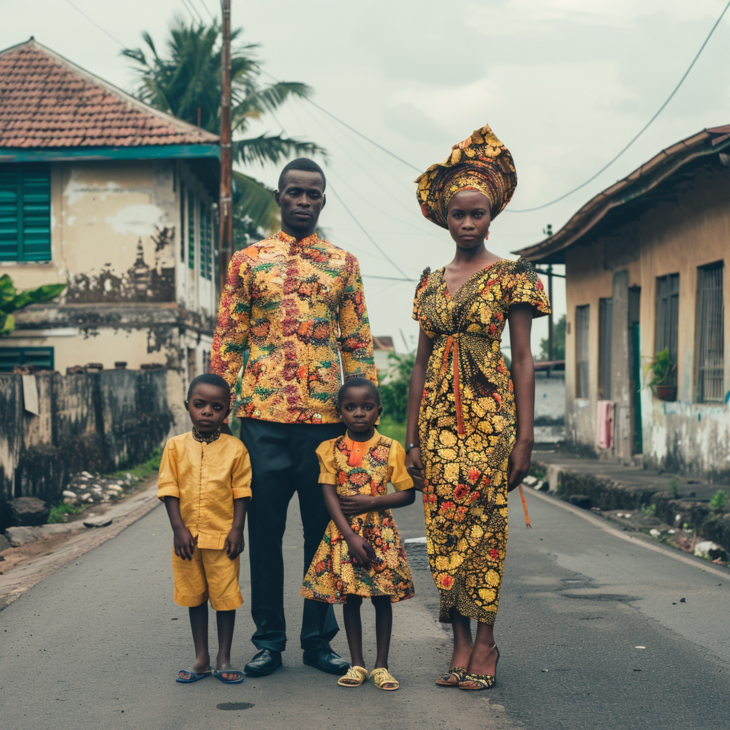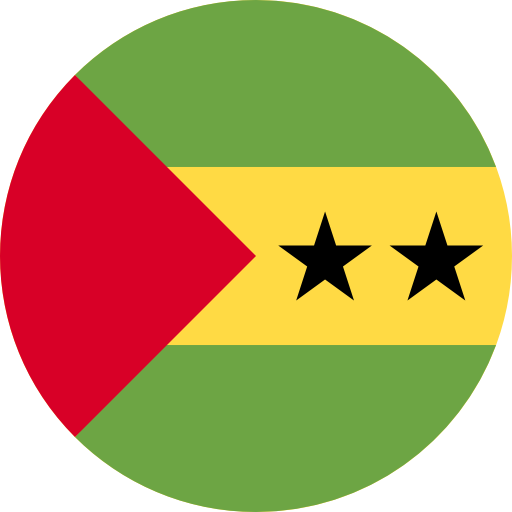About ST

Location
São Tomé and Príncipe is a small island nation located in the Gulf of Guinea, off the western coast of Central Africa. It consists of two main islands, São Tomé and Príncipe, along with several smaller islets.
Capital
The capital city of São Tomé and Príncipe is São Tomé.
Population
As of the latest estimates, São Tomé and Príncipe has a population of approximately 219,000 people.
Area
São Tomé and Príncipe covers a total land area of about 1,001 square kilometers (386 square miles), making it one of the smallest countries in Africa.
Official Language
The official languages of São Tomé and Príncipe are Portuguese and Forro, a Portuguese-based Creole language.
Government
São Tomé and Príncipe is a democratic republic with a multi-party political system. The President serves as both the head of state and the head of government, and the Prime Minister is the head of the Cabinet.
Independence
São Tomé and Príncipe gained independence from Portugal on July 12, 1975.
Currency
The currency of São Tomé and Príncipe is the São Tomé and Príncipe dobra (STD).
Economy
São Tomé and Príncipe's economy is largely dependent on agriculture, particularly cocoa production, which is the country's main export. Fishing and tourism also contribute to the economy, although to a lesser extent. São Tomé and Príncipe have significant potential for offshore oil exploration, which could play a role in its future economic development.
Natural Features
São Tomé and Príncipe is known for its lush tropical vegetation, volcanic landscapes, and beautiful beaches. The islands are characterized by dense rainforests, waterfalls, and unique biodiversity. Pico Cão Grande is a notable landmark, a dramatic needle-shaped volcanic plug rising from the forest.
Culture
São Tomé and Príncipe have a rich cultural heritage influenced by African, Portuguese, and other European traditions. Traditional music, dance, and cuisine reflect the country's diverse cultural roots. Festivals and celebrations, such as the São João Festival, are important aspects of São Toméan culture.
Religion
Christianity is the predominant religion in São Tomé and Príncipe, with the majority of the population adhering to Roman Catholicism. There are also small Protestant and indigenous religious communities.
Infrastructure
São Tomé and Príncipe have basic infrastructure, including roads, ports, and airports, although facilities may be limited in some areas. Access to healthcare and education remains a challenge, particularly in rural areas.
International Relations
São Tomé and Príncipe maintains diplomatic relations with countries around the world and is a member of various international organizations, including the United Nations, the African Union, and the Community of Portuguese Language Countries (CPLP).
Challenges
São Tomé and Príncipe faces challenges such as poverty, unemployment, limited access to healthcare and education, and vulnerability to natural disasters. Efforts are underway to address these challenges through economic diversification, social programs, and international cooperation.

National Items of São Tomé and Príncipe
Cocoa
São Tomé and Príncipe is renowned for its high-quality cocoa production. Cocoa symbolizes the agricultural heritage, economic significance, and global trade connections of the islands.
São Tomé Thrush
The São Tomé thrush is an endemic bird species found only on São Tomé Island. It symbolizes the unique biodiversity and rich natural heritage of the archipelago.
Obo National Park
Obo National Park encompasses a significant portion of São Tomé Island, symbolizing the country's commitment to conservation, biodiversity, and natural beauty.
Blue Lagoon
The Blue Lagoon is a famous natural attraction, symbolizing the stunning coastal beauty and the ecotourism potential of São Tomé and Príncipe.
Palm Wine
Palm wine, a traditional alcoholic beverage made from the sap of palm trees, symbolizes cultural heritage, traditional practices, and social customs.
Pico Cão Grande
Pico Cão Grande is a striking volcanic plug peak, symbolizing the geological diversity, natural beauty, and adventurous spirit of the islands.
Forro Music
Forro music is a traditional genre in São Tomé and Príncipe, symbolizing the rich musical heritage, cultural expression, and artistic traditions of the islands.
Roça
Roça refers to the old Portuguese plantation houses and estates, symbolizing the historical heritage, colonial history, and agricultural past of the islands.
Breadfruit
Breadfruit is a staple food in São Tomé and Príncipe, symbolizing agricultural heritage, sustenance, and traditional cuisine.
Tchiloli
Tchiloli is a traditional theatrical performance that combines music, dance, and drama. It symbolizes cultural heritage, artistic expression, and social traditions.
Coffee
São Tomé and Príncipe produce high-quality coffee, symbolizing the agricultural heritage, economic importance, and global trade connections of the islands.
Santomean Pepper
Santomean pepper is known for its unique flavor and is an important spice in local cuisine. It symbolizes the rich culinary heritage and agricultural diversity of the islands.
Traditional Fishing Canoes
Traditional fishing canoes are commonly used by local fishermen, symbolizing maritime heritage, traditional livelihoods, and the importance of the sea.
Banana Plantations
Banana plantations are a common sight on the islands, symbolizing agricultural heritage, economic significance, and traditional farming practices.
Portuguese Colonial Architecture
The Portuguese colonial architecture seen in many buildings and landmarks symbolizes the historical heritage, colonial history, and cultural influences of São Tomé and Príncipe.
Turtle Conservation
Turtle conservation efforts on the islands symbolize the commitment to biodiversity, natural beauty, and environmental protection.
Folk Tales and Legends
Traditional folk tales and legends passed down through generations, symbolize the rich oral tradition, cultural heritage, and storytelling traditions of the islands.
Santomean Cuisine
Santomean cuisine, characterized by dishes like calulu (a stew made from fish or meat and vegetables), symbolizes the rich culinary heritage, cultural diversity, and traditional cooking practices.
São Tomé and Príncipe Creole
The Creole language spoken in São Tomé and Príncipe symbolizes cultural identity, linguistic heritage, and social cohesion.

The anthem reflects the spirit of unity, progress, and determination of the people of São Tomé and Príncipe towards achieving total independence, peace, and prosperity for their nation.
São Tomé and Príncipe's national anthem is called "Independência Total" (Total Independence). Here are the lyrics in the original Portuguese language along with an English translation:
Avante, avante povo
À conquista do progresso
Braços dados vamos todos
Pra fazer São Tomé crescer
Avante já, avante já
Povo unido sem temor
Com ódio de raça ou religião
Formaremos o nosso batalhão
Refrão:
Avante, avante povo
Independência total
Pela paz e pelo povo
Marchemos unidos em batalhão
Lutar sempre com denodo
Na defesa da justiça
Reerguer sempre São Tomé
Na paz, no progresso e na justiça
Avante já, avante já
Povo unido sem temor
Com ódio de raça ou religião
Formaremos o nosso batalhão
Refrão:
Avante, avante povo
Independência total
Pela paz e pelo povo
Marchemos unidos em batalhão
Forward, forward people
To conquer progress
Together we will go
To make São Tomé grow
Forward, forward now
United people without fear
With no hatred of race or religion
We will form our battalion
Chorus:
Forward, forward people
Total independence
For peace and for the people
Let us march united in battalion
Always fight with courage
In defense of justice
Always rebuild São Tomé
In peace, progress, and justice
Forward, forward now
United people without fear
With no hatred of race or religion
We will form our battalion
Chorus:
Forward, forward people
Total independence
For peace and for the people
Let us march united in battalion


